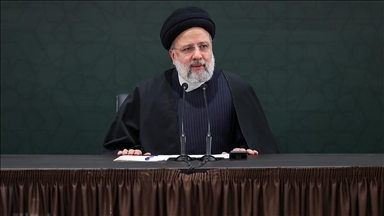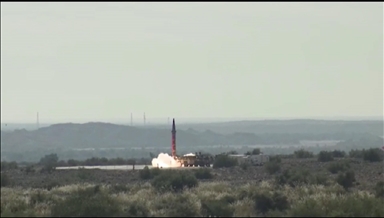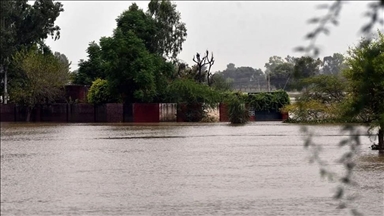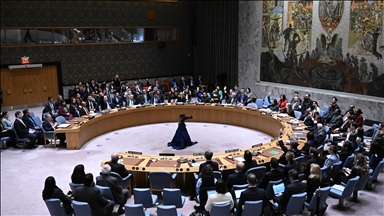Pakistan's IMF bailout package - rescue or trap?
IMF package seen as temporary relief to country’s tottering economy
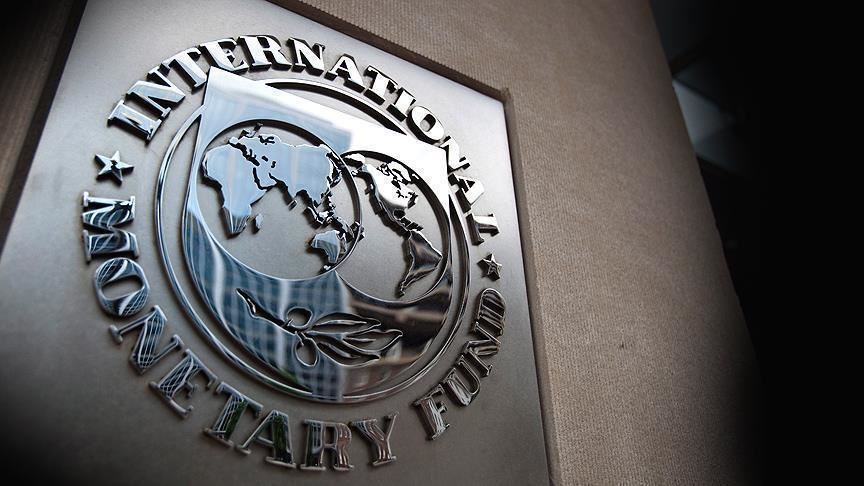
KARACHI, Pakistan
Pakistan sealed a $6 billion bailout deal with the International Monetary Fund (IMF) last week to shore up its fragile public finances and underpin its slowing economy, but the program is unlikely to achieve stabilization amid sacrificed growth, according to local economists.
They also fear that the three-year structural adjustment program, which is expected to be formally approved by the Fund’s executive board in July, will further add to rising inflation and utility tariffs.
This will be the IMF’s 13th structural adjustment program for Pakistan since 1988.
“The basic focus of this program [in line with previous programs] is stabilization now and growth later. But history tells us that at the end of these programs, Pakistan’s average growth rate remained the lowest in South Asia since 1988,” Shahid Hasan Siddiqui, a Karachi-based economist, told Anadolu Agency.
“This is because of the artificial stabilizations that eventually disturbed the growth rate,” Siddiqui said.
He said another key condition of the latest IMF program was to reduce the budget deficit by meeting tax collection targets, which seemed to be difficult to achieve for various political reasons.
To bridge this gap, he observed, the cash-strapped government would go for indirect taxes and raising utility tariffs, which would directly impact the general public.
Under the agreement, the government will no longer control the dollar value against the local rupee. Instead, it will be dealt with by the open market.
Also, the government will start withdrawing exemptions offered on various taxes amounting to around 350 billion rupees in the 2019-20 budget.
“Rupee devaluation will certainly increase the country’s exports and reduce the rising imports. But a hike in power and gas tariffs will increase the cost of production and ultimately neutralize the devaluation benefit.
“The currency devaluation will also increase the cost of raw materials which Pakistan imports for its export output,” Siddiqui added.
Analysts view the rising imports as a major threat to the country’s $300 billion economy.
Pakistan’s annual imports currently total around $60 billion compared to a mere $24 billion worth of exports.
Temporary relief
Kaiser Bengali, a former government economic adviser, views the IMF package as temporary relief to the country’s tottering economy.
“The IMF package means nothing more than some time to fill the balance of payments gap. It’s just breathing space,” Bengali told Anadolu Agency.
He observed that despite the latest IMF loan, which is insufficient to meet the country’s actual requirements, Pakistan had to go to the commercial market to borrow short-term and expensive loans, which would further deepen the dollar deficit, he maintained.
“This [dollar deficit] will further push Pakistan to look to the IMF,” he said.
Bengali linked the proposed IMF package to talks between Islamabad and the Financial Action Task Force (FATF), a global terror financing watchdog. The FATF has already placed Pakistan on its gray list for not taking enough measures to curb terror financing and money laundering. Now, the FATF meeting is continuing in China with Turkey, the U.S., the U.K., China, India and others participating.
“I believe the IMF has brought Pakistan to this stage deliberately. Now both the IMF and FATF will force Pakistan to carry out multiple drastic structural economic reforms, mainly related to terrorism financing”, he contended.
Farrukh Saleem, an Islamabad-based economist, shares a similar view.
“This package is yet to be approved. It will only be approved if Pakistan meets some key IMF conditions, mainly related to cooperation with the FATF and the forthcoming budget,” Saleem told Anadolu Agency.
Grappling with a colossal $18 billion current account deficit, Islamabad’s current external debt stands at nearly $100 billion -- the bulk of it borrowed from the World Bank, IMF, Asian Development Bank, Islamic Development Bank, the United States, China, France and other countries.
Recently, Saudi Arabia and the United Arab Emirates also announced bailout packages of $6 billion each for Pakistan.
The South Asian nuclear state has conceded a loss of $100 billion since 2002 after joining the U.S.-led war against terrorism.
Endorsement
Since 1993, Siddiqui said, successive governments have been accusing their predecessors of ruining the economy despite “repeated successful IMF programs”.
“Every government would declare itself near bankrupt and approach the IMF not long after the successful completion of the IMF program by the previous government,” he said.
“And I fear it will happen this time also.”
But he viewed the bailout package as beneficial as well in a few terms.
“The foremost benefit is that the simmering foreign reserves crisis will be contained for a longer period due to [loan] installments from the IMF,” he said.
Annual remittances to the tune of $20 billion from overseas Pakistanis are a major source of the country’s foreign reserves, which currently stand at $16 billion.
Saleem said the only benefit he could see was the “endorsement” Pakistan would get from the IMF which would enable it to “cash in” through other forums such as the World Bank and Asian Development Bank.
“It’s not only because we need a loan from the IMF, but we need its endorsement of our economic policies to get loans from the World Bank, Asian Development Bank and other donor agencies,” he said.
Otherwise, he contended, the IMF model was not aimed at rescuing countries out of crises.
“The IMF’s agenda is not to strengthen global economies, because if it does that, then the Fund itself will be out of business”, he said.
Anadolu Agency website contains only a portion of the news stories offered to subscribers in the AA News Broadcasting System (HAS), and in summarized form. Please contact us for subscription options.


